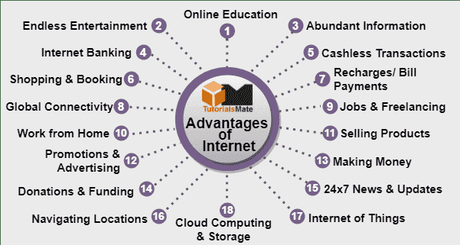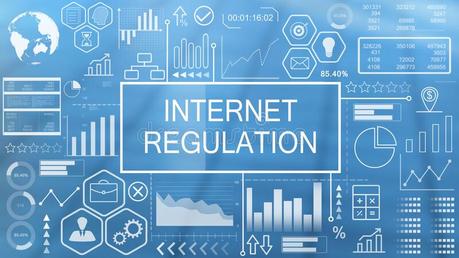Why Internet Should Be Regulated: A Comprehensive Guide. The internet has become an integral part of our daily lives, providing us with unlimited access to information, entertainment, and communication. However, the lack of regulation has created a host of problems that threaten our safety, security, and privacy. In this article, we will discuss the reasons why internet regulation is necessary, the challenges of implementing it, and the potential benefits it can bring.
The internet has become an essential part of our daily lives, transforming the way we communicate, work, learn, and socialize. While the internet has brought many benefits, such as access to information and services, it has also raised a range of concerns and challenges, from online safety and privacy to fake news and hate speech.
Why Internet Should Be Regulated: A Comprehensive Guide
As a result, there is a growing debate about whether and how the internet should be regulated to ensure its safe and responsible use. In this comprehensive guide, we will explore the reasons why internet regulation is necessary, the potential benefits and criticisms of internet regulation, and the challenges and opportunities of implementing effective and responsible regulation. Whether you are a policymaker, a business owner, a user, or just someone interested in the future of the internet, this guide will provide you with a thorough understanding of the complex and dynamic landscape of internet regulation.
In this section, we will define internet regulation, its purpose, and why it is a controversial topic. We will also provide an overview of the article’s structure and main arguments.
The Importance of Internet Regulation:
In this section, we will discuss the reasons why internet regulation is essential. We will cover issues such as cyber bullying, online harassment, hate speech, fake news, and misinformation. We will also explore the impact of these problems on individuals, communities, and society as a whole.
The Challenges of Implementing Internet Regulation:
In this section, we will examine the obstacles to internet regulation, including legal, political, and technical issues. We will also discuss the role of governments, corporations, and individuals in ensuring the effective implementation of internet regulation.
Potential Benefits of Internet Regulation:
In this section, we will explore the potential benefits of internet regulation. We will discuss how it can improve online safety, protect free speech, promote diversity and inclusion, and enhance democratic values. We will also examine the examples of successful internet regulation in different countries and contexts.

Improved Online Safety:
One of the primary benefits of internet regulation is improved online safety. Regulations can help prevent cyber bullying, online harassment, and other forms of digital abuse. This can create a safer online environment for individuals, especially children and vulnerable populations.
Protection of Free Speech:
Internet regulation can also protect free speech by preventing hate speech, defamation, and other forms of speech that incite violence or discrimination. This can create a more inclusive and tolerant online community where everyone’s voices can be heard without fear of harm.
Read more: The 10 Technologies That Will Change The Future
Promotion of Diversity and Inclusion:
Internet regulation can promote diversity and inclusion by preventing discrimination based on race, ethnicity, gender, sexual orientation, religion, or other factors. Regulations can ensure that everyone has equal access to information and opportunities online.
Enhancement of Democratic Values:
Internet regulation can enhance democratic values by ensuring that all individuals have equal opportunities to participate in online discussions and debates. Regulations can help prevent the spread of misinformation and fake news, which can undermine public trust in democratic institutions.
Creation of a Fairer, More Transparent, and More Equitable Online Environment:
Successful internet regulation can create a fairer, more transparent, and more equitable online environment. Regulations can ensure that everyone follows the same rules and standards, regardless of their social status or economic power. This can help prevent the concentration of power and influence in the hands of a few corporations or individuals.
Overall, internet regulation can bring a range of potential benefits that can create a safer, more inclusive, and more democratic online environment. However, it’s essential to balance these benefits with the need to protect free speech and individual rights, and to address the challenges of implementing effective and responsible regulation.
Criticisms of Internet Regulation:
In this section, we will address the criticisms of internet regulation. We will cover concerns such as censorship, surveillance, and the restriction of free speech. We will also examine the arguments against government intervention in online affairs and the potential unintended consequences of regulation.
Threat to Free Speech:
One of the primary criticisms of internet regulation is that it can be a threat to free speech. Critics argue that regulations can be used to suppress dissenting voices, limit the free exchange of ideas, and stifle innovation and creativity.
Ineffectiveness:
Another criticism of internet regulation is that it can be ineffective in achieving its goals. Some critics argue that regulations can be too broad or too vague to be enforced effectively, while others argue that they can be too narrow or too specific to address the complex and rapidly evolving challenges of the online environment.
Inconsistency:
Internet regulation can also be criticized for its inconsistency. Regulations can vary widely from country to country, and even within countries, depending on the political, social, and cultural context. This can create confusion and uncertainty for businesses, users, and regulators themselves.
Threat to Privacy:
Some critics argue that internet regulation can be a threat to privacy. Regulations can require the collection and sharing of personal data, which can be used for surveillance, profiling, and other forms of invasive monitoring. This can undermine trust in online services and erode the fundamental right to privacy.

Cost and Complexity:
Internet regulation can also be criticized for its cost and complexity. Regulations can require significant resources to implement and enforce, including technical expertise, legal resources, and regulatory infrastructure. This can create barriers to entry for smaller businesses and startups, which may not have the resources to comply with complex and costly regulations.
Overall, internet regulation can face a range of criticisms that can make it challenging to implement effectively and responsibly. It’s essential to balance the potential benefits of regulation with the need to protect free speech, individual rights, and privacy, and to address the challenges of inconsistency, ineffectiveness, and complexity.
FAQs:
What is internet regulation?
Internet regulation refers to the process of imposing rules, standards, and restrictions on internet activities and content. The aim is to promote online safety, protect individual and collective rights, and foster democratic values.
Why is internet regulation necessary?
Internet regulation is necessary to address a range of problems, such as cyber bullying, online harassment, hate speech, fake news, and misinformation. These issues can have serious consequences for individuals, communities, and society as a whole.
What are the challenges of implementing internet regulation?
The challenges of implementing internet regulation include legal, political, and technical issues. Governments face the dilemma of balancing freedom of expression and the need for social responsibility. Corporations struggle to comply with different regulations across different jurisdictions. Individuals may face censorship, surveillance, and restrictions on their online activities.
What are the potential benefits of internet regulation?
The potential benefits of purpose for data privacy include improved online safety, protection of free speech, promotion of diversity and inclusion, and enhancement of democratic values. Successful internet regulation can create a fairer, more transparent, and more equitable online environment.
What are the criticisms of internet regulation?
The criticisms of internet regulation include concerns about censorship, surveillance, and restriction of free speech. Some argue that governments should not interfere with online activities, and that market forces and individual responsibility should be enough to ensure online safety

Read more: Good or bad facial recognition technology in 2023
Conclusion:
In this section, we will summarize the main arguments presented in the article and emphasize the importance of balancing freedom and responsibility in the online world. We will also call for further discussions and actions to address the challenges and opportunities of internet regulation.
In conclusion, the internet has become a crucial and ubiquitous part of our lives, offering many benefits and opportunities. However, it also presents many challenges and risks, from online safety and privacy to misinformation and hate speech. As a result, there is a growing need for effective and responsible regulation of the internet. While internet regulation can be a contentious issue, it can also offer many potential benefits, such as protecting users’ rights and safety, fostering innovation and competition, and promoting a healthy and vibrant online ecosystem.
To achieve these benefits, it’s essential to address the criticisms and challenges of internet regulation, such as the potential threats to free speech and privacy, the risk of ineffective or inconsistent regulations, and the cost and complexity of implementing and enforcing regulations. Ultimately, the future of the internet depends on finding the right balance between the benefits and risks of regulation, and ensuring that regulation is guided by principles of transparency, accountability, and respect for individual rights and freedoms.
